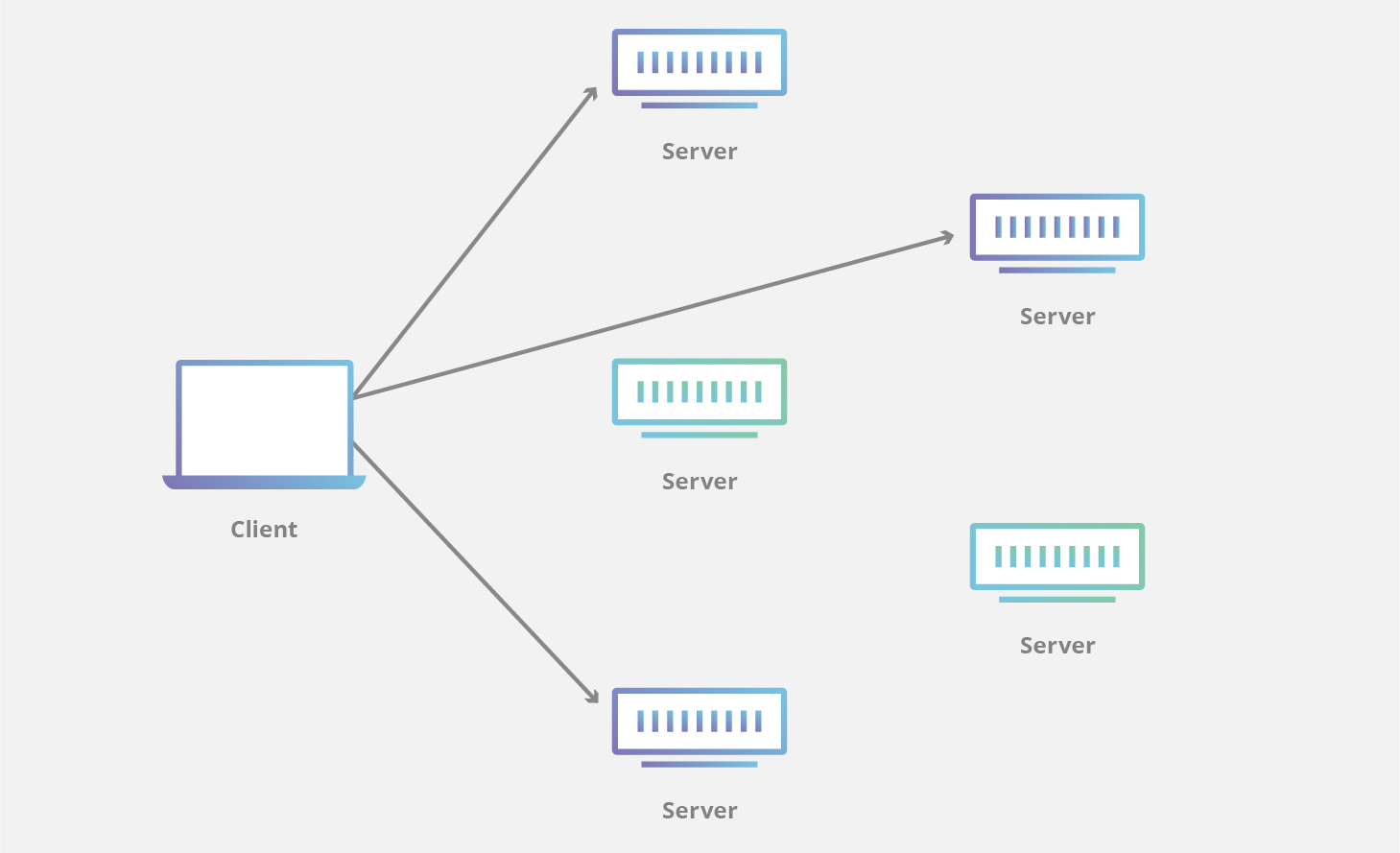
A certificate authority (CA), also known as a trusted certifying body, is an independent third party who issues digital certificates. These certificates can verify the identity of an organization in online interactions. They are also vital for ensuring all data transmitted through an Internet connection is encoded.
What Is A Certificate Authority?
A CA, or Certificate Authority, is a business or organization that has been granted authorization by browsers to provide SSL/TLS (and other forms of certificates). They also undergo annual audits by third parties to ensure they comply with defined policies and procedures for validation, issuance, and revocation of certificates.
How can certificate authorities improve public trust?
Ultimately, the main purpose of a CA is to increase public trust by increasing a website's credibility in the eyes of others. The certificate authority, just like the DMV, vouchs for an organization's credibility by digitally signing certifications that prove its legitimacy.

What is Certificate Authority Chains (CACs)?
The certificate chain in cybersecurity refers to a group of intermediate certifcates that connect the final end-user and the root CA. This chain protects internet connections from cyber attacks and spoofing by posing as a legitimate site or service.
The chain of confidence is vital to the security and safety of internet connections. It relies upon the ability to validate an organization's authenticity. Domain validation is a process that involves several verification steps.
What are the differences in a CA versus a CERT certification?
A certificate authority is a company that manages public keys, credentials and certificates for data encryption. Its main responsibility is to make sure that the end user receives a unique certification for efficient identity verification.
What is the distinction between a private and public certificate authority?
A public certification authority is a trusted entity that is recognized as an independent entity by all web browsers. It is responsible for ensuring that websites it issues certificates for comply with the Baseline Requirements set by the CA/B Forum, a non-profit consortium of web browsers.

What is the difference between trusted certificate authority (TCA) and ssl Certificate Authority?
A ssl certification authority is an entity that issues TLS/SSL to websites to protect their users. They accomplish this by adding a layer of encryption to communication between your browser and their servers. This protects you from data theft and unauthorized access.
What is a CERT?
A Certificate Authority is a trusted third party that issues certificates and manages the public keys and credentials for data encryption. Its principal responsibility is ensuring that end users receive a unique, efficient certificate for identity authentication.
Why are certificate authorities so valuable?
They are essential to the security of Internet and act as a stumbling-block for hackers. They are essential for securing the Internet and authenticating web sites. In addition, they play an important role in maintaining Internet security and public key infrastructure.
FAQ
How can I make a website for free?
This will depend on the type and purpose of your website. Do you want to sell online products, start a blog, build a portfolio, or both?
It's possible to make a website that is essential using HTML and CSS. While it's possible to create a simple website using HTML and CSS, most web developers recommend using a WYSIWYG editor such as Dreamweaver or Frontpage.
If you don't have experience designing websites, hiring a freelance developer might be the best option. They can help you build a website customized to your needs.
You can either pay a flat rate per project or an hourly rate to a freelance developer. It all depends on how much work they do in a set timeframe.
One example is that some companies charge $50-$100 for an hour. Higher rates will be charged for larger projects.
Many freelance websites also list open jobs. There are many websites that list available jobs.
How Much Does It Cost To Create An Ecommerce Website?
It depends on the platform you choose and whether you use a freelancer to build your site or hire a service provider. The average eCommerce site starts at $1,000.
Once you choose a platform to use, you can expect a payment of anywhere from $500 to $10,000.
A template is usually less than $5,000 if you plan to use it. This includes any customization you need to make to fit your brand.
What is a static site?
Static websites are those where all content is stored on a web server and can be accessed by users via their web browsers.
The term "static", as it is sometimes called, refers not to dynamic features such changing images, videos, animations, etc.
This site was initially designed for corporate intranets, but it has been adopted by individuals or small businesses who desire simple websites that don't require complex programming.
Because static websites require less maintenance, they have grown in popularity. They're easier to update and maintain when compared to a fully-featured website with many different components (such as blogs).
They load much faster than dynamic counterparts. This makes them great for those who have slow Internet connections or users with mobile devices.
A static website is more secure than its dynamic counterparts. It is difficult to hack into static websites. Hackers only have access the data in a database.
Two main methods can be used to create a static site:
-
Using a Content Management System (CMS)
-
How to create a static HTML website
Which one you choose depends on your requirements. A CMS is a good choice if you are new to website creation.
Why? Because it gives you complete control over your website. A CMS means that you don't have to hire someone to set up your website. Upload files directly to the CMS.
You can still learn how to code and create a static website. However, you will need to put in some time to learn how to program.
How much do web developers make?
Working on a website yourself will likely earn you between $60 and $80 an hour. But if you want to charge a lot more, you should consider becoming an independent contractor. It is possible to charge between $150-200 an hour.
Does A Good Portfolio Make Me More Likely To Be Hired As A Web Developer?
Yes. A portfolio is essential when landing a web designer or developer job. Your portfolio should include examples of your skills.
Portfolios usually include samples of past projects. These can be anything that shows off your skill set. Include everything: mockups; wireframes; logos; brochures; websites and apps.
Statistics
- It enables you to sell your music directly on your website and keep 100% of the profits. (wix.com)
- At this point, it's important to note that just because a web trend is current, it doesn't mean it's necessarily right for you.48% of people cite design as the most important factor of a website, (websitebuilderexpert.com)
- Did you know videos can boost organic search traffic to your website by 157%? (wix.com)
- Studies show that 77% of satisfied customers will recommend your business or service to a friend after having a positive experience. (wix.com)
- It's estimated that in 2022, over 2.14 billion people will purchase goods and services online. (wix.com)
External Links
How To
Drupal 7 Web Design Tips
Drupal is one of the most popular Content Management Systems (CMS) available today. It was originally developed by DriesBuytaert (Belgium) in 2003. The name derives its name from Dirk Buijtewaard's and Pierre d'Herbemont's initial letters. In 2005, Drupal became open source, and since then, there are many versions of this CMS. Drupal is used worldwide by many websites and businesses.
Drupal is popular because of many reasons. It's free to download. It is also easy to modify and expand. Third, it is well-documented. It also provides excellent support via forums and IRC channels. It can be extended via modules. Sixth, it can support multiple languages. It is also easily customizable. It can be scaled. Ninth, it's secure. Tenth, it is reliable. Finally, it is supported by the community. Drupal is an excellent choice for your next development project.
You might be asking yourself what makes Drupal so different from other CMS systems. It's simple. Drupal is an open-source content manager system. Drupal is free and open-source content management system. With Drupal, you have complete control over your website. You can edit your website, add pages or delete them, and change the colors, fonts, images and videos.
Drupal is an option for those who lack the technical skills required to create websites. You don't have to be a programmer to build your website, unlike other CMS. Only you will need to be able to use the basic functions of Drupal. This will allow you to customize your website as per your requirements.
Drupal has many themes and plugins that are already pre-built. These plugins will allow you to increase the functionality of your website. To gather contact information from your visitors, you could use the Contact Form Module. Google Maps is another option to show maps on your website. Drupal comes with many ready-made templates. These templates give your website a professional look.
Drupal's flexibility makes it extremely flexible. Drupal supports many different modules, so you can easily add or remove them from your website without worrying about compatibility. It's easy to integrate social media on your website. You can also create RSS feeds and e-mail subscriptions.
Drupal's flexibility is also a plus. Drupal can be customized with custom fields and forms. You can also manage users. Drupal is capable of creating complex layouts.
Drupal is reliable and robust. Drupal is both stable and scalable. It offers outstanding security features. Drupal is a solid web development platform.